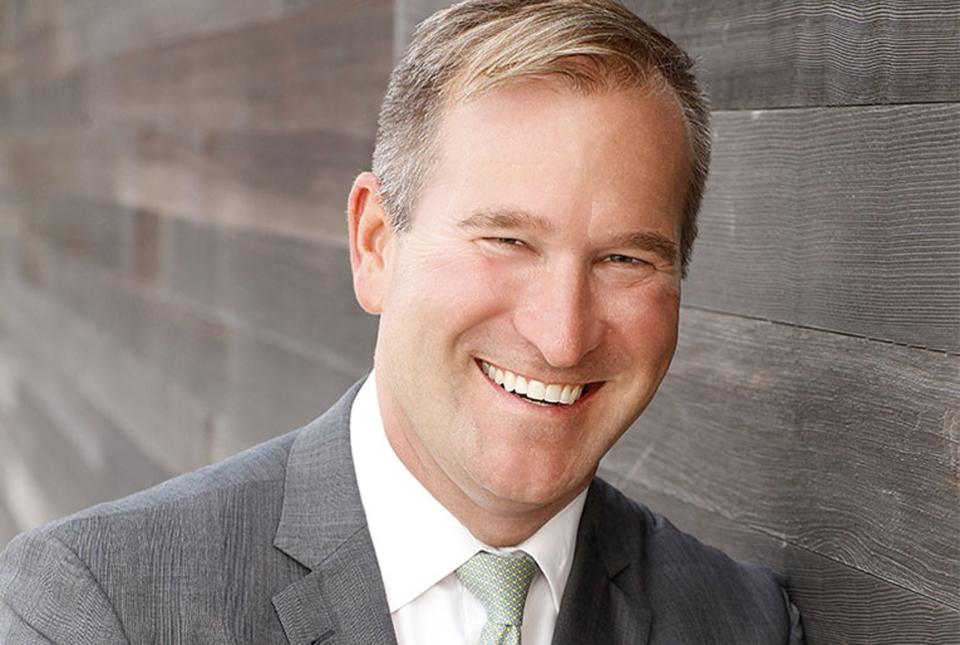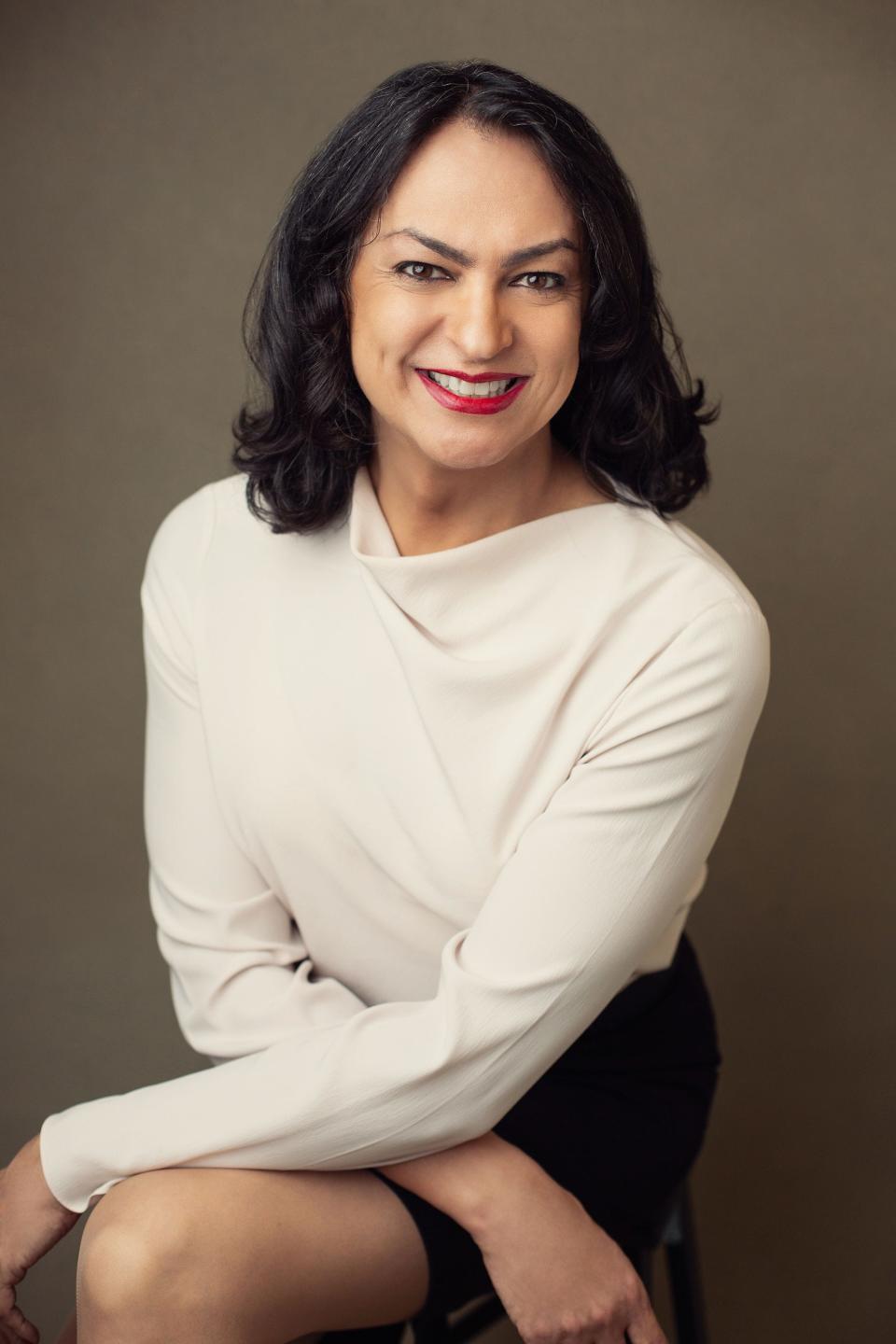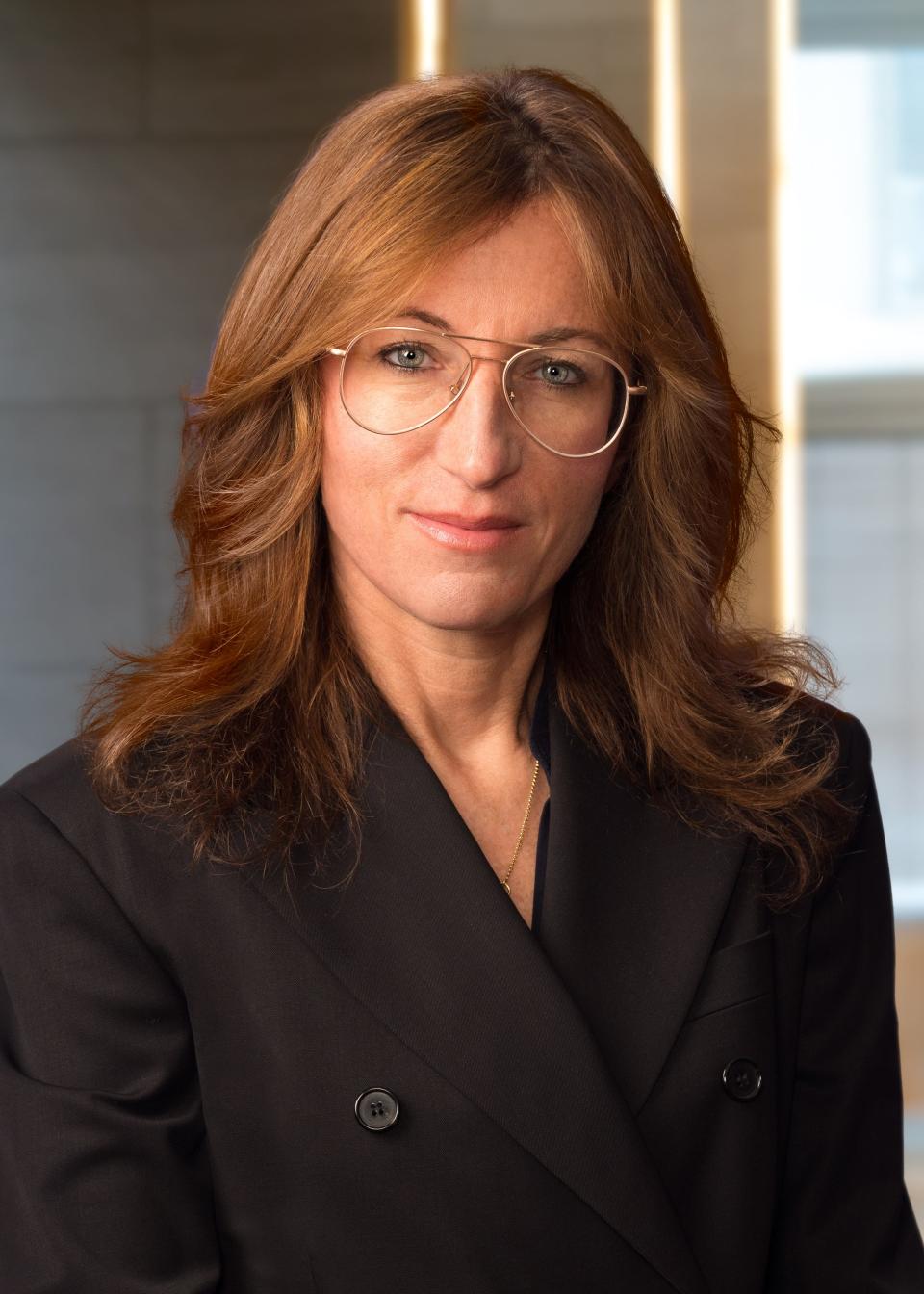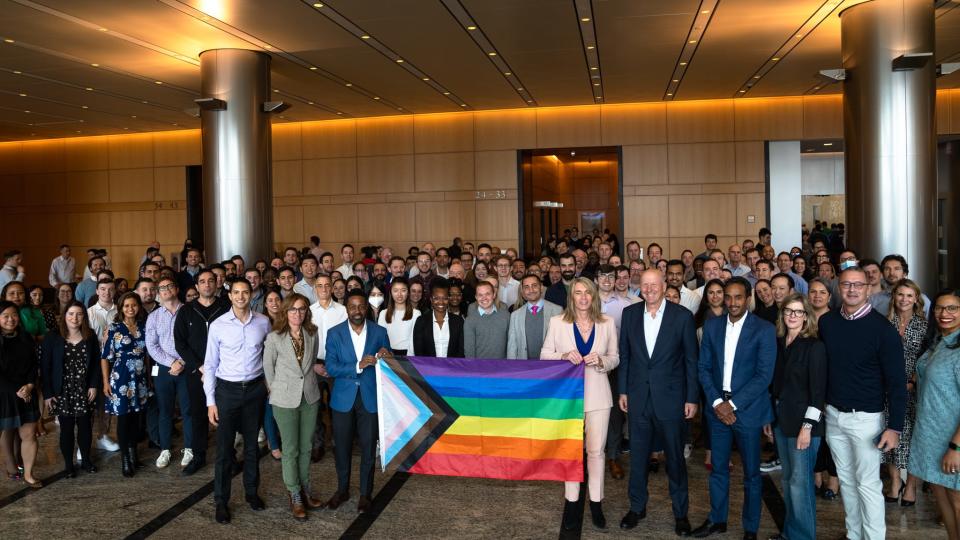Going beyond a rainbow flag at your desk: Here's the business impact of LGBTQ inclusion in the workplace
A return on investment, or ROI, is a key term used by business leaders as they assess the bottom line.
But a return on equality, or "ROE," is just as important, said Todd Sears, founder and CEO of Out Leadership, a global LGBTQ business advisory that focuses on LGBTQ inclusion at the C-Suite level.
"There are so many reasons why companies should be broadly inclusive," Sears said, noting that equity impacts business outcomes ranging from the attraction of talent to the retention of clients. And equity means recognizing and embracing every employee's gender identity and sexual orientation.
"We like to say the LGBTQ community is the canary in the coal mine for that company’s culture,'' Sears added, "because what that company and leaders do for an invisible minority like the LGBTQ minority directly sends a signal to the visible minorities about how supportive … and how inclusive they are.''
DEAF LGBTQ YOUTHS, further on the margins, likelier to feel depressed or suicidal than their hearing peers
WILL IT WORK?: Anti-trans bills could be one key Republicans use to rally their base ahead of midterms

The need for corporate diversity and equity drew renewed focus in the wake of the killings of George Floyd, Breonna Taylor, and other Black Americans, which sparked nationwide protests in 2020, and amid a rise of worker activism that has led a growing number of Starbucks and Amazon employees to unionize, and workers at companies like Kellogg's and John Deere to go on strike.
As several states pass laws that target the LGBTQ community, business leaders and advocates say it's critical for companies to continue striving for inclusion, not only to represent their customers values, but to stay relevant and succeed.
"Expectations have changed,'' said Lanaya Irvin, CEO of Coqual, a global think tank that conducts research and advises corporations on diversity, equity and inclusion efforts. "It's not just the employees. It's customers and investors (and) corporate boards. Their expectations are that companies are going to be committed to inclusion. They’re going to be committed to equity. Lip service will no longer do.''

Considering the bottom line of diversity
Diversity also improves the bottom line.
Businesses that ranked in the top quartile for ethnic and cultural diversity among their executives in 2019 were 36% more likely to have higher than average profits than companies that were the least inclusive, according to a global report by McKinsey.
Meanwhile, businesses with the most gender diversity among their top leadership were 25% more likely to have higher profits than those companies that had the least.
"Having a more diverse workforce is fantastic for business,'' said Susie Scher, chair of Goldman Sachs' global financing group and the most senior out LGBTQ person at the firm. "We've seen that proven out in many ways, including in studies around gender and race, including the performance of companies with more diverse boards ... and LGBTQ diversity is an important stream of diversity for us.''
Charlotte Hamilton, a transgender woman who is CEO of Conamix, a battery company based in Ithaca, New York, said a diverse staff has helped fuel her business with a variety of ideas.
"We want to cast as wide a net as we can,'' Hamilton said. "It improves our likelihood of success to have more, and different, kinds of people involved and making innovations that are moving our company forward."

The willingness to 'change and disrupt'
And yet many LGBTQ workers say they still struggle for acceptance and recognition.
A 2016 Coqual study found that 42% of LGBT respondents in the U.S. had experienced discrimination on the job because of their identity in the previous five years.
Among LGBTQ professionals, 23% say they've been regularly asked to do administrative tasks that are not officially part of their responsibilities, as compared with 17% of their non-LGBTQ peers, Coqual found. Many LGBTQ workers also say they are routinely interrupted in meetings (17% as compared to 10% of their non-LGBTQ colleagues), and that co-workers have believed they held a lower-level job than they actually had (14% vs. 7%).
Feeling out of place at work is amplified for LGBTQ employees who also belong to another marginalized group. For instance, 31% of Black LGBTQ professionals say peers have stereotyped them as compared to 17% of Black non-LGBTQ professionals who say the same, according to a November 2021 Coqual study.
Irvin, who previously worked on Wall Street, has had her share of isolating experiences.
"As a Black, female-bodied, out LGBTQ leader, even with privilege and access I knew I would be discounted … in some of the rooms I've occupied," she said.
Irvin said she understands the "headwinds'' that can make it difficult for a corporate culture to make diversity and equity a priority.
"Oftentimes, the biggest challenge is fear and inertia,'' Irvin said. "It's fear of getting it wrong. Fear of saying the wrong thing. (Or a) lack of willingness to change and disrupt historical ways of doing things."
'You can be more out'
Companies need to make their commitment to LGBTQ employees tangible, business leaders say.
"First and foremost, what workplaces need to do is telegraph their openness to the broad spectrum of sexual orientation and gender identity,'' said Scher of Goldman Sachs.

That means making sure LGBTQ employees are part of a company's promotion, mentoring and sponsorship processes and programs, Scher explained, "as workplaces do for all other underrepresented groups.''
Then there are more subtle ways of ensuring a company's workforce understands that LGBTQ inclusion is important.
Scher recalled how roughly 15 years ago, a Goldman executive who was sponsor of what the firm then called its gay and lesbian network encouraged her to talk at more events and note that she was gay.
"She said 'You can be more out','' Scher said, adding that she later followed that advice when, during a talk to 600 newly promoted vice presidents, she mentioned her wife.
There were two sets of reactions, Scher recalls. For gay and lesbian employees unsure about whether they could be comfortably out at the firm, "I would meet their eyes and I would see them relax,'' she said.
Others who weren't gay and who may not have known many people who were raised their eyebrows. Yet Scher said it was still meaningful for them "to see me standing on a stage ... saying I'm gay, and that's OK at Goldman Sachs.''
Allyship goes beyond stickers and flags
Allyship is also critical, business leaders and advocates say.
Goldman set up an ally network roughly a dozen years ago, and those who wanted to be a part of it were given cards declaring their allyship that they could set on their desks.
Now, in addition to those cards, staffers also display rainbow flags, and the firm's CEO David M. Solomon has posed with LGBTQ+ plus employees to celebrate Transgender Day of Visibility.
"These subtle symbols are as important as the bias training,'' Scher said. "Until you walk the talk, you don’t have an LGBTQ inclusive firm.''

Irvin said that allyship means taking action.
"It doesn't mean you have to have all the answers and totally understand LGBTQ people and experiences of underrepresented groups,'' she said. "But allyship does mean you have to be willing to intervene, willing to disrupt bias, willing to use your privilege to lift up and amplify the experiences of others, honoring their perspectives.''
It can take many forms, such as saying "so-and-so should get that promotion, or calling out someone in a client meeting,'' adds Sears of Out Leadership. "It's those subtle moments of allyship that the person they’re supporting may not even know happened."
Changes to the classrooms have an impact on businesses
But even as many businesses make an effort to be inclusive, several states with Republican leaders have passed a wave of legislation targeting the LGBTQ community, including Florida's law that restricts discussion of sexual orientation and gender identity in classrooms.
"I think these laws won't serve the purpose that they wanted to achieve, but in the short term they're definitely causing damage," Sears said.
Such legislation creates a negative business environment as well, Sears pointed out. Research by Out Leadership in 2020 and 2021 found that 24% of LGBTQ employees have relocated to another city to get away from intolerance toward LGBTQ people, and 36% of LGBTQ workers say they would think about moving to a state that was more accepting.
"There are direct business outcomes for these laws,'' Sears said, adding that legislation targeting trans youth who want to play sports, for instance, affects not only those young people but their parents who are in the workforce and the parents of nontrans youth who don't want their children being educated in an intolerant environment.
As talent moves to another part of the country, he said, "there's a direct bottom-line impact of discrimination.''
Accountability is key
Companies making the most progress are tying managers and senior leaders' compensation to tangible improvements, Irvin said.
But even if a business or organization feels uncertain about the exact steps needed to increase equity, there are actions any business leader can take to mitigate bias and help the company overall, Irvin said.
Those include making the workplace a safe space to offer ideas and being willing to accept and implement employees' advice.
"When we exhibit these basic behaviors, uplifting voices of others, sharing credit, those are some things any employer can do,'' Irvin said. "And when you set those conditions or model those behaviors you're making the workplace better for everyone."
This article originally appeared on USA TODAY: Among LGBTQ employees, 24% relocated because of intolerance

 money
money 